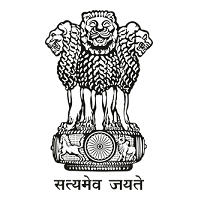Best Ancient History Books for UPSC Preparation
Preparing for the UPSC examination requires a deep understanding of various subjects, with ancient history being a crucial component. In this article, we provide a comprehensive list of the best ancient history books for UPSC, ensuring that you have the right resources to excel. Our recommendations cover essential books, ancient history resources for UPSC, and tips on how to effectively study this important subject. Whether you are just starting your preparation or looking to strengthen your knowledge, these resources will be invaluable. Let's dive into the top books for ancient history UPSC preparation and make your study journey smoother and more efficient. Importance of Ancient History in UPSC
Ancient history is a vital part of the UPSC syllabus, appearing in both the Preliminary and Main examinations. It includes a wide range of topics such as the Indus Valley Civilization, Vedic Age, Mauryan and Gupta Empires, and other significant periods. A strong grasp of ancient history not only helps answer direct questions but also provides context for understanding India’s rich cultural and political heritage. This holistic understanding is invaluable in the UPSC exam, where analytical and interpretative skills are key. Moreover, ancient history forms the bedrock of many contemporary societal norms and institutions, making it essential for aspirants to develop a nuanced understanding of these foundational periods. Criteria for Selecting the Best Books
Choosing the right books is critical for efficient and effective study. Here are the criteria we used to select the recommended ancient history books for UPSC:
Comprehensive Coverage: Books that thoroughly cover the UPSC syllabus, ensuring no significant topic is left out.
Authoritative Sources: Authored by reputable historians and scholars known for their expertise in ancient history.
Ease of Understanding: Written in clear, accessible language, making complex topics easier to grasp.
Additional Features: Inclusion of practice questions, summaries, and maps that aid in better retention and understanding of the material.
By following these criteria, we ensure that the books listed provide both depth and breadth of knowledge, catering to the diverse needs of UPSC aspirants.
Top Ancient History Books for UPSC
Here are the best ancient history books UPSC aspirants should consider:
◦Overview: This book offers a detailed account of ancient Indian history, covering political, social, and economic aspects. It is widely respected for its thorough research and insightful analysis.
◦Key Topics: It includes comprehensive sections on the Vedic Age, the Mauryan Empire, the Gupta Empire, and more.
◦Why Recommended: Known for its clarity and depth, it is an excellent starting point for UPSC aspirants, providing a solid foundation in ancient Indian history..
◦Overview: This book delves into the intricacies of Indian art, culture, and architecture. It is an essential resource for understanding the cultural aspects of ancient history.
◦Key Topics: Covers architecture, sculpture, paintings, and other cultural facets of ancient India.
◦Why Recommended: Essential for those looking to excel in the art and culture segments of the UPSC exam, providing a detailed and engaging study of India's cultural heritage.
Recommended NCERT Books for Ancient History
NCERT books are foundational resources for UPSC ancient history preparation. They are known for their simplicity and clarity, making them ideal for building a strong base. Here are the recommended ones:
Using these NCERT books as a starting point helps build a solid foundation, which can then be expanded with more specialised texts.
How to Prepare for Ancient History in UPSC
Preparing for ancient history involves a strategic approach. Here are some tips for effective UPSC ancient history preparation:
1.Create a Study Plan: Break down the syllabus into manageable sections, allocating specific time slots for each topic to ensure comprehensive coverage.
2.Take Notes: Summarise key points, dates, and events. Effective note-taking can significantly aid in quick revisions.
3.Use Timelines: Visualise major events and their chronological order to better understand the progression of historical periods.
4.Focus on Archaeology: Pay attention to significant archaeological findings, as they provide concrete evidence and context to historical narratives.
5.Integrate Art and Culture: Study the cultural aspects, including architecture, sculpture, and paintings, to gain a holistic understanding of ancient societies.
6.Practice with Previous Papers: Solving past years’ question papers helps familiarize with the exam pattern and the types of questions asked.
7.Join Study Groups: Engaging in discussions with peers can provide new insights and enhance understanding.
By following these strategies, aspirants can develop a comprehensive understanding of ancient history, which is crucial for the UPSC exam.
Conclusion
Selecting the right books is crucial for excelling in the UPSC ancient history section. The recommended books provide comprehensive coverage and are tailored to meet the needs of UPSC aspirants. Begin your preparation early, stay consistent, and make the most of the resources available to achieve success in your UPSC journey. By following the guidelines and utilizing the resources mentioned, you can build a strong foundation in ancient history and improve your chances of success in the UPSC examination.

